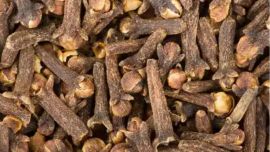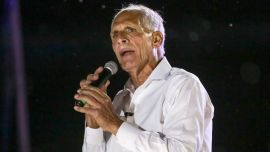Nobody saw it coming. Before people started casting their votes last Sunday morning, just about all the professional pollsters assured us that Mauricio Macri and Alberto Fernández were running neck-and-neck, some even suggested that the president was edging ahead.
But before the day was out, it became clear that his challenger was leading by several laps. This means that unless something truly remarkable happens, Argentina will soon be back in Kirchnerite hands, a prospect that so alarms the markets that they have put the country on suicide watch.
Their gloomy view of what a new Kirchnerite administration will in all likelihood get up to once in office is shared by Macri. He hopes that the post-primary turmoil – what with “the brokers roaring like beasts on the floor of the bourse,” the peso plunging, hyperinflationary storm clouds gathering and mobs of protesters thronging the streets of Buenos Aires – will be enough to make the electorate change its collective mind and allow him to keep his job for four more years.
In an attempt to win some voters back, Macri loosened his grip on the economy by taking the kind of measures Kirchnerites feel they have to approve of but which they know will make the task facing them even harder. Peronist governments have always liked to take over after someone else has done the “dirty work” of reducing the many deficits accrued by the State in a country addicted to overspending. Fernández would no doubt prefer to see the president make the task awaiting him easier by tightening the screws still further, but with elections still months ahead such self-sacrificing responsibility is not an option for a man who is obliged to keep looking for votes.
Many think Macri is in denial but, thanks to Argentina’s crazy electoral system, unless he quits now and thereby confirms the rule that only Peronist (or military) presidents can complete their allotted term, he has little choice but to carry on campaigning. Fernández agrees; he insists the government, bereft though it may be of what authority it had, should continue to govern until December 9. Though the two tried to calm things down a bit by telling the world they have got in touch by telephone, without either saying anything really nasty, Argentina looks likely to remain adrift in a strange politico-constitutional limbo for the next few months.
In the United Kingdom, whoever leads the party that wins a general election can expect to be quickly sworn in by the Queen and move straight away into 10 Downing Street; the removal vans start revving up minutes after the results come in. This, on occasion, distressful procedure makes it less likely that the people formally ruling the country get rendered powerless by uppity voters. In Argentina, the transition period can drag on for months; when Raúl Alfonsín lost to Carlos Menem in 1989, he felt obliged to call it a day almost half a year before the date fixed by the Constitution. That made sense. A powerless government is worse than useless.
The presidential system can work well enough in such circumstances if the man or woman allegedly in charge performs merely ceremonial duties and behaves much like a constitutional monarch who floats above day-to-day politics. This is the prevailing arrangement in Germany and other European countries, in which parliamentarians rather than presidents call the shots, but l o n g a g o Argentina’s top people decided to copy the United States. As events would make clear, they would have been better advised to look elsewhere for inspiration.
For Argentina to get out of the hole into which she has fallen, without making nonsense of the constitutional rules, Macri would have to limit himself to cutting ribbons and pronouncing uplifting apolitical speeches, while leaving all other business to Fernández and his cohorts. Unfortunately, that is something neither want to see happen. As far as Macri is concerned, the genuine elections have yet to take place and it is in his interest to saddle Fernández with the blame for the many things that are certain to go wrong between now and October or even November, if a run-off becomes necessary. For his part, Fernández must hope that Macri makes such a mess of it that even more people turn against him, giving him a bigger victory than the one Cristina Fernández de Kirchner enjoyed in 2011 when she got a whopping 54 percent of the popular vote. This would certainly strengthen his hand.
It would be hard to imagine a better recipe for chaos than the one that has been concocted by the country’s political elite. The current arrangement resembles that of feudal Japan in which the emperor was in theory an all-powerful demigod, but real power was wielded by the shogun who, on occasion, was himself the puppet of a warlord lurking in the background. On Sunday, Alberto Fernández was given the role of shogun, but many of the people surrounding him take their orders from Cristina. Who, then, will really rule Argentina after the dust has settled? The answer to that by no means insignificant question could be a long time in coming.
The consensus, for what it is worth, is that Fernández is a fairly sensible bloke who has more in common with Macri’s runningmate, the Peronist senator Miguel Angel Pichetto, than with Cristina. If he is the canny operator without ideological hang-ups optimists believe him to be, the economic policies he adopts once in office will not be that different from the ones the current government is pursuing. With money in desperately short supply, there will be little else he can do unless he wants to strike a blow against capitalism by making the country follow Venezuela down the plughole.
Unfortunately for Fernández, and for Argentina, there are plenty of Kirchnerites who find that alternative appealing. Many will turn on him if he begins behaving like a heartless “neoliberal” who takes seriously those wretched numbers mean-minded economists go on about. Will Cristina egg them on or try to restrain them? To keep her onside, the man she chose to become Argentina’s next president would have to let her and her relatives keep the loot they collected when the going was good. It would be scandalously immoral, but if Fernández is the dyed-in-the-wool pragmatist he seems to be, he will surely have something like that in mind.




















Comments